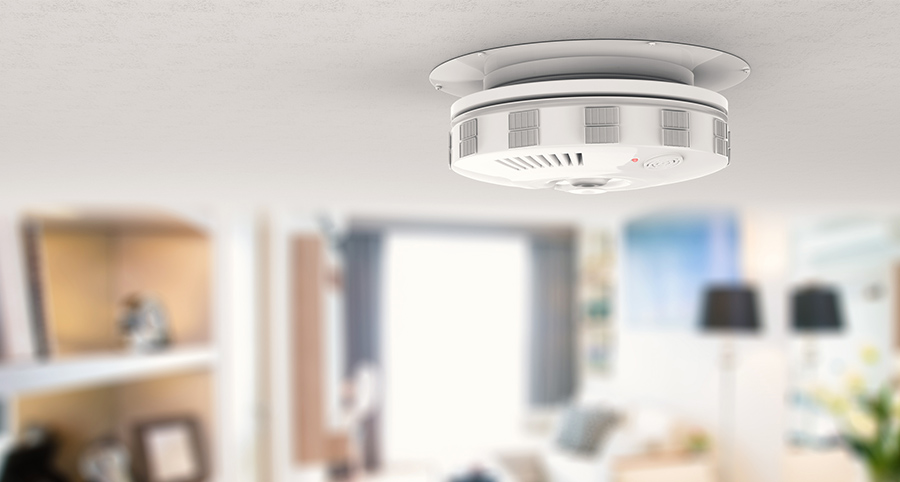Is there a difference between traditional smoke detectors vs. monitored fire alarms in Detroit?

In the Detroit smoke detector vs. monitored fire alarm discussion, one alarm rises over the rest. Smoke detectors are an essential first step in guarding your residence from fire, but they have some notable drawbacks. Alternatively, monitored fire alarms have more ways to discover a fire and may reach out to a monitoring team when the unthinkable happens. Connecting your fire alarms to a home security system also results in other advantages that your ordinary smoke detectors would only hope for.
The drawbacks of traditional smoke alarms in [[targetlocaion]]
Protecting your home from fire is a chief concern for homeowners, and smoke detectors take on an essential part in shielding your family. Even so, smoke detectors have some drawbacks. To illustrate, they are only able to detect smoke, not extreme temperatures. In the event there is a fire in your house, you would not be alerted before the smoke ascends to the smoke detector. While there are some other telltale signals of fire -- like a sharp rise in heat -- if there’s a lack of smoke, you won’t have a warning from your smoke detector.
In addition, smoke detectors only sound the alarm when they find enough smoke. In the event a fire creeps along slowly at first, you may not be alerted until the situation is out of hand. Many smoke detectors utilize dual-sensor technology, meaning they will recognize smoke from both a blazing inferno and a more gradual burn. Whenever they do go off, it falls to the homeowner to call emergency services after they safely leave the residence.
Monitored fire alarms do much more than standard smoke detectors
Even though they look like regular smoke detectors, monitored fire alarms can do much more. If connected to a complete home security system, they are able to:
- Detect fire with dual-sensor smoke detection: Similar to an ordinary smoke detector, this monitored alarm can trigger from an intense fire or one that has just started smoking. It will resonate a high-volume beeping whenever it senses a hazardous situation.
- Identify fire from a abrupt heat surge: Your monitored fire alarm can even trigger if it discerns an abnormal increase in heat. Frequently, heat is noticed in advance of smoke. More ways to identify a fire leads to extra means to keep your family safe.
- Notifies trained monitoring agents: Fires can happen when you are at your house or not. Either way, your fire alarms will alert your monitoring specialists, who will swiftly contact the fire department. When seconds count, it's great to realize that somebody is constantly watching over your house.
- Integrates with home automation: While the chief task of a fire alarm is to detect fire and notify assistance, it may also join forces with other automated devices. For example, a triggered alarm could make your system start the exhaust fan to slow the spread of fire or trigger lighting so you are able to find the best path out of the house.
Your monitored fire alarms are a key element of a fully equipped smart home
The best way to optimize your fire alarms is to connect them with a Vivint home security system. Contact a Vivint security agent today and customize the most suitable smart home for your needs. Call (313) 766-2527 or complete the form below to begin.